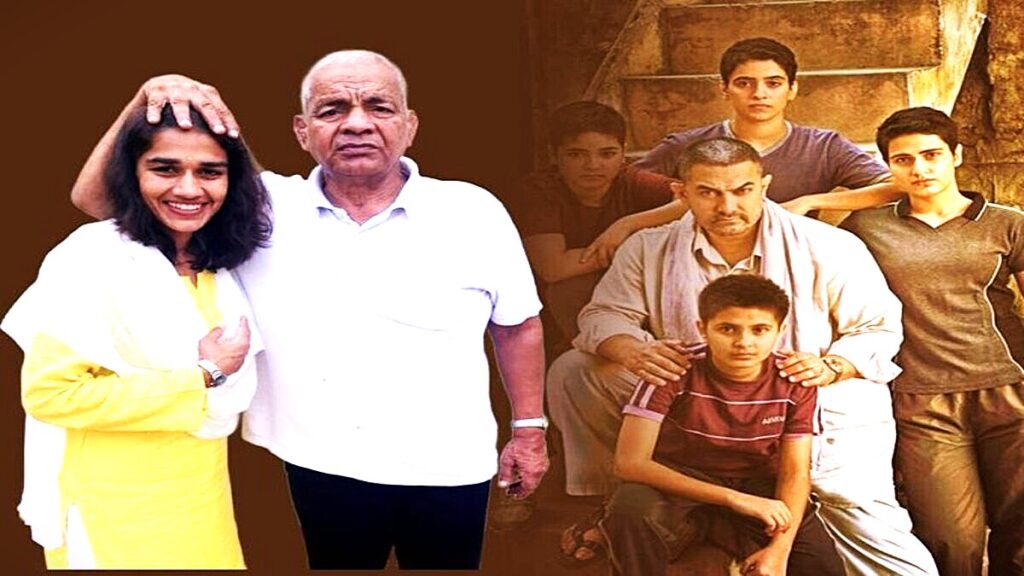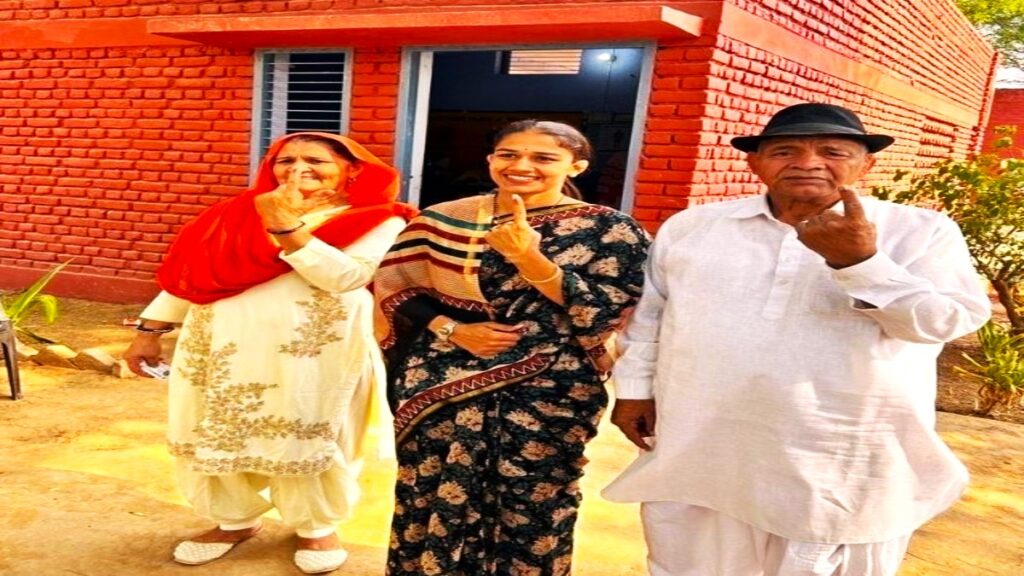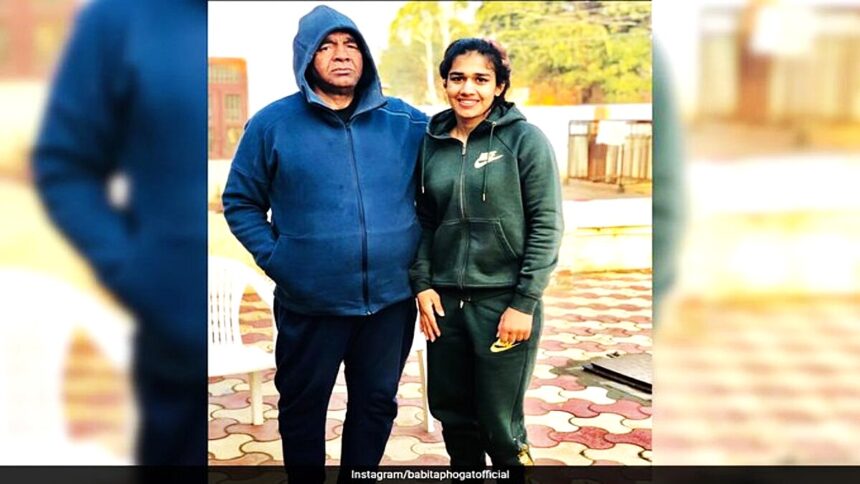A Film Inspired by Real Lives
The Bollywood blockbuster Dangal, released in 2016, captured the hearts of millions and inspired a new wave of interest in women’s wrestling in India. Starring Aamir Khan, the film is based on the true story of the Phogat sisters—Geeta and Babita—and their father, Mahavir Phogat, who trained them to become world-class wrestlers. While the film’s success is undeniable, Babita Phogat’s recent revelations bring to light the emotional and financial implications of this cinematic portrayal.
Box Office Triumph, Personal Sacrifice
In a candid interview with News24, Babita Phogat shared her thoughts on the financial aspect of Dangal. Despite the film’s staggering earnings of over ₹2000 crore globally, Babita disclosed that her family received a mere ₹1 crore from the makers. This disparity has sparked discussions about the representation and compensation of individuals whose stories are adapted for mainstream media.
When questioned about the significant gap between the film’s earnings and her family’s share, Babita confirmed the figures. This revelation led to further inquiries about her feelings regarding the compensation. Surprisingly, Babita expressed that the financial aspect was not her family’s primary concern. She stated, “No, Papa said one thing that I need people’s love and respect.” Her father, Mahavir Phogat, emphasized the importance of reputation and recognition over monetary gain, highlighting their family’s values.
Babita Phogat: Aamir Khan made the movie Dangal about the Phogat sisters and earned ₹2000 crores, but gave only ₹1 crore to the Phogat family pic.twitter.com/wYar0RsKhQ
— Amit Shah (Parody) (@Motabhai012) October 22, 2024The Legacy of ‘Dangal’
Dangal not only tells the story of the Phogat family but also addresses broader themes of gender equality, perseverance, and the quest for respect in a patriarchal society. The film showcases Mahavir Phogat’s determination to train his daughters in a sport traditionally dominated by men. His commitment transformed Geeta and Babita into champions, winning medals on the international stage and bringing pride to India.
Babita Phogat herself has an impressive sporting resume. She clinched a silver medal at the 2010 Commonwealth Games and followed that up with a gold in 2014. Additionally, she earned a bronze at the 2012 World Wrestling Championships. Though she competed in the 2016 Rio Olympics, she did not secure a medal. After her retirement from wrestling in 2019, Babita ventured into politics, where she continues to advocate for issues close to her heart.

Reflections on Fame and Recognition
Babita’s remarks during the interview underline a significant perspective: for her family, the love and respect from the public outweigh financial gains. This sentiment is particularly poignant in a country where athletes, especially women, have historically faced numerous obstacles in achieving recognition. The emotional weight of their story, and how it resonated with audiences, has perhaps brought the Phogat family more joy than any monetary reward could.
However, her statements also raise questions about the ethics of biographical films and the responsibilities of filmmakers towards the subjects of their stories. While Dangal successfully brought the Phogat sisters’ journey to a global audience, it also serves as a reminder of the complexities involved in sharing personal narratives.
The Price of Fame
While Babita Phogat remains grateful for the love and respect garnered from Dangal, her family’s experience opens up a dialogue about the financial implications for those whose lives are adapted into film. The disparity between the film’s profits and the compensation for the Phogat family reflects a broader issue in the film industry, where stories of real people can lead to significant profits for producers while the subjects receive little in return.
The emotional toll of this experience is also worth considering. While the film has undoubtedly elevated the status of women wrestlers in India, it has also highlighted the sacrifices made by the Phogat family in their pursuit of success. Babita’s commitment to her family’s legacy shines through in her words, emphasizing that true victory lies not just in medals or monetary rewards, but in the love and admiration of the people.

A Continuing Journey
As Babita Phogat continues her journey in politics, she remains a powerful advocate for women’s rights and sports in India. Her story, intertwined with the success of Dangal, serves as a source of inspiration for many young athletes, especially girls who aspire to break barriers in male-dominated fields.
The Phogat family’s tale is a testament to resilience, determination, and the fight for respect—qualities that resonate well beyond the wrestling mat. As they navigate the complexities of fame, financial disparity, and public perception, their commitment to empowering future generations remains unwavering.
In conclusion, while Dangal achieved remarkable commercial success, Babita Phogat’s reflections remind us that the true impact of storytelling lies in its ability to inspire and uplift, not just financially, but also emotionally and culturally. The Phogat family’s legacy continues to grow, and their story will undoubtedly motivate countless others to pursue their dreams, regardless of the challenges they may face.
Read More : Mourning the Loss of Liam Payne: Tributes and Reflections





